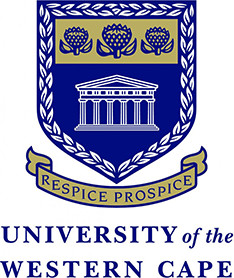Detention of doctor leads to suspension of Obiang prize
A letter from James McFadden, executive assistant at the Fulbright Commission in Seoul, Korea, to the Executive Board of the United Nations Education, Science and Culture Organization concerning the prize being sponsored by Teodoro Obiang, president of Equatorial Guinea, lead to the suspension. The full text of the letter follows.
"I write to bring to your attention the ongoing, unwarranted detention of Wenceslao Mansogo Alo, a medical doctor in Bata, Equatorial Guinea. It is an irony of the highest order that UNESCO is considering awarding a prize purportedly for "research in the life sciences" backed by President Obiang when his government has allowed the unjustified detention of one of the country's most skilled and dedicated physicians while simultaneously failing to ensure even basic access to medical care for most of the country's population.
I personally know Dr. Mansogo, having spent four weeks with him in 2009 as a student with funding from Harvard University to document public health issues. I am dismayed that he has been behind bars since 9 February 2012.
Dr. Mansogo, in addition to running one of the country's finest clinics, is a prominent member of an opposition political party and a highly respected human rights defender. He serves as the secretary for international relations and human rights of the Convergence for Social Democracy (CPDS), which is the country's only political party with a member of parliament not affiliated with the ruling party. In that capacity, he has prepared innumerable reports documenting torture, arbitrary detention, forced evictions, and land expropriations. In 2009, Dr. Mansogo filed a submission on behalf of CPDS to the United Nations Human Rights Council as it prepared to review Equatorial Guinea's human rights performance through its Universal Periodic Review (UPR) process.
He also traveled to Geneva for the UPR review in March 2010 and spoke on an eminent panel in the UN's Palais des Nations about abuses in Equatorial Guinea, alongside a former member of the UN Working Group on Arbitrary Detention.
In short, Dr. Mansogo has long been an outspoken critic of the government, which appears to have seized an opportunity to act against him when a patient of his died of a heart attack during surgery on February 1. Certainly the patient's family deserves answers to their questions about the death, but this case has the hallmarks of a government reprisal for his work. Amnesty International considers him a "prisoner of conscience" and has called for his unconditional release, as have others, citing the circumstances that suggest his detention has political motives. Dr. Mansogo was fully cooperating with a police investigation when he was detained. He has remained in detention for three weeks despite a lack of charges or any credible evidence of wrongdoing.
The government has since tried to close his clinic, citing nonexistent violations. The detention of one of Equatorial Guinea's most capable doctors in a country lacking qualified physicians is an injustice not only to Dr. Mansogo but to the many patients who rely on the services of his clinic.
In a country where access to professional and quality-assured medical attention is severely limited to those who can afford it -- Obiang government officials and foreign oil company personnel -- I watched Dr. Mansogo work tirelessly to help provide similar quality services to those who needed it most. On July 15th, 2009, I wrote the following concerning Dr. Mansogo in my personal journal, which is available in archival form on the internet:
The doctor here at the clinic (Wenceslao Mansogo Alo) is one of the hardest working people I've ever met. He comes to work early in the morning around sunrise, doesn't take a break until the afternoon, and returns and works until well past 9pm. He does this seven days a week and somehow remains jovial and enthusiastic the whole time. I would have thought after getting kicked out of the public hospital for being a member of an opposition political party, he could have been disillusioned and either abandoned his party affiliation or fled to practice in another country. Yet, he didn't choose to take the easy way out because of his strong passion for his country, community, and family.
My experience in Equatorial Guinea was eye-opening: the disparity in both living conditions and access to public services between the government-affiliated elite and average citizens was incredibly stark.
Such gaps are not uncommon in sub-Saharan Africa, but for a country with a per-capita gross domestic product similar to Spain's and Italy's, it is appalling and patently unjust.
The deplorable slums of Malabo and Bata, the two largest cities, are a visual hypocrisy not easily ignored. Muddy streets filled with garbage, tangled power lines, and the roar of gasoline-powered generators to compensate for the perpetual rolling blackouts seriously calls into question the fiscal responsibility of a government leader who would donate $3 million to create a prize in his honor, yet still fail to provide even the basics of infrastructure and public health.
The staggering poverty in Equatorial Guinea combined with the indefensible arrest and continued incarceration of Dr. Mansogo highlight the inappropriateness of President Obiang's appeal for a UNESCO award that he claims will help improve the health and wellbeing of impoverished citizens, particularly those in Africa.
In addition to calling for Dr. Mansogo's release, I strongly recommend cancelling this prize, which is an affront to the citizens of Equatorial Guinea and the pursuit of a just system of health access worldwide.
Sincerely,
James McFadden
The Fulbright Commission in Seoul, Korea"


